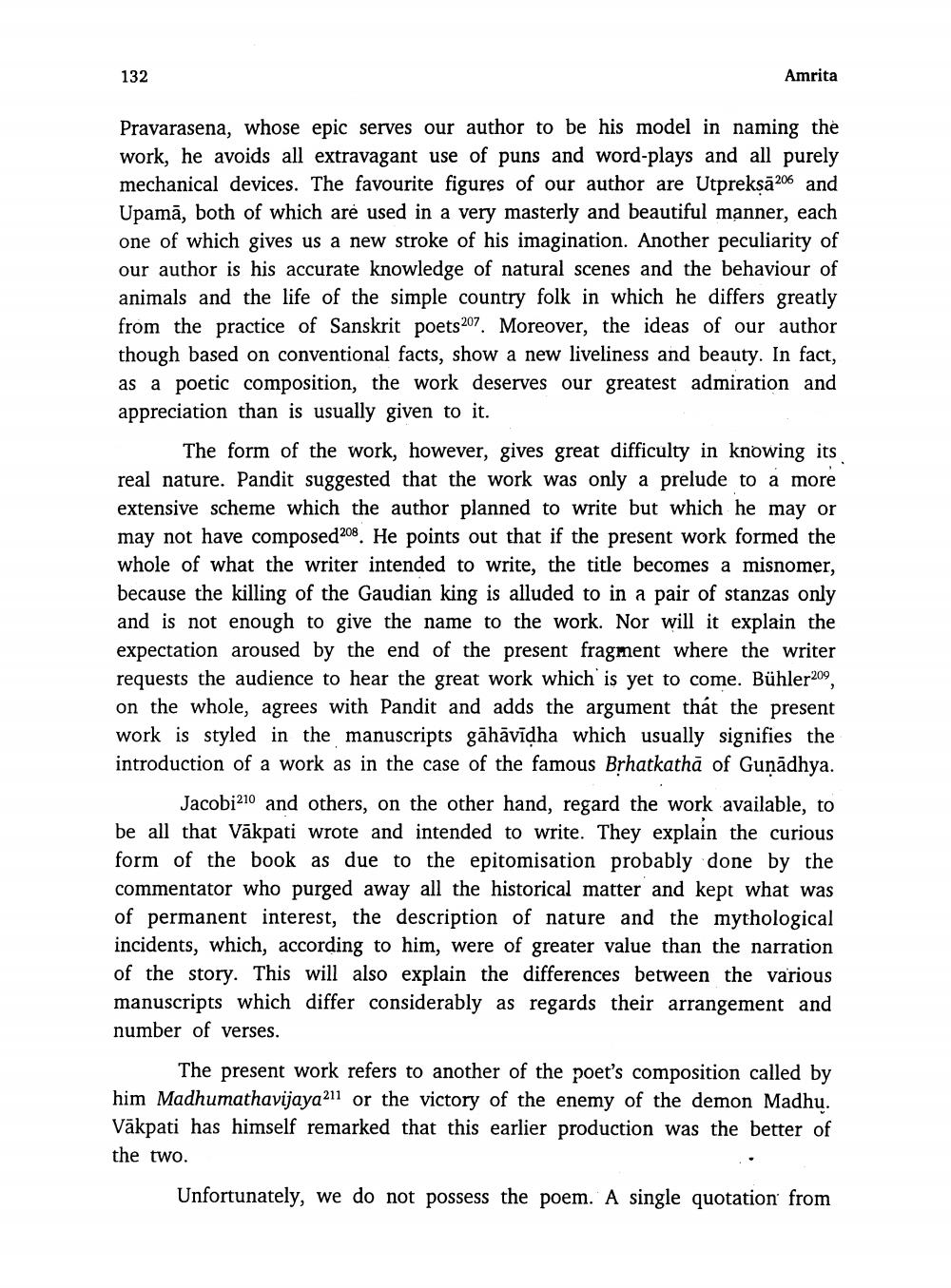________________
132
Amrita
Pravarasena, whose epic serves our author to be his model in naming the work, he avoids all extravagant use of puns and word-plays and all purely mechanical devices. The favourite figures of our author are Utpreksā206 and Upamā, both of which are used in a very masterly and beautiful manner, each one of which gives us a new stroke of his imagination. Another peculiarity of our author is his accurate knowledge of natural scenes and the behaviour of animals and the life of the simple country folk in which he differs greatly from the practice of Sanskrit poets 207. Moreover, the ideas of our author though based on conventional facts, show a new liveliness and beauty. In fact, as a poetic composition, the work deserves our greatest admiration and appreciation than is usually given to it.
The form of the work, however, gives great difficulty in knowing its real nature. Pandit suggested that the work was only a prelude to a more extensive scheme which the author planned to write but which he may or may not have composed208. He points out that if the present work formed the whole of what the writer intended to write, the title becomes a misnomer, because the killing of the Gaudian king is alluded to in a pair of stanzas only and is not enough to give the name to the work. Nor will it explain the expectation aroused by the end of the present fragment where the writer requests the audience to hear the great work which is yet to come. Bühler209, on the whole, agrees with Pandit and adds the argument that the present work is styled in the manuscripts gāhāvīdha which usually signifies the introduction of a work as in the case of the famous Brhatkathā of Gunādhya.
Jacobi210 and others, on the other hand, regard the work available, to be all that Vākpati wrote and intended to write. They explain the curious form of the book as due to the epitomisation probably done by the commentator who purged away all the historical matter and kept what was of permanent interest, the description of nature and the mythological incidents, which, according to him, were of greater value than the narration of the story. This will also explain the differences between the various manuscripts which differ considerably as regards their arrangement and number of verses.
The present work refers to another of the poet's composition called by him Madhumathavijaya211 or the victory of the enemy of the demon Madhu. Vākpati has himself remarked that this earlier production was the better of the two.
Unfortunately, we do not possess the poem. A single quotation from




